There are many different types of family lawyers in Canada, each offering specialization for a particular concern. This guide will help you understand the different types of lawyers and how they can help you with your family law matters.
1. Common Law
Common law lawyers are also known as divorce lawyers. Common law family lawyers deal with cases involving marriage, divorce, child custody, and other family law matters. They represent clients in both provincial and supreme courts.
2. Family Court
Family court lawyers represent clients in family court proceedings. They deal with cases involving divorce, child custody, and other family law matters.
3. Pre- and Post-Nuptial
If you are getting married, you may want to consider a pre-nuptial agreement. This agreement between you and your future spouse outlines how your assets will be divided in the event of a divorce. A postnuptial agreement is similar but is signed after you are already married.
4. Disability
Disability family lawyers help clients with disabilities obtain the benefits and services they are entitled to.
5. Real Estate, Wills, and Power of Attorney
To buy or sell a home, you must hire a real estate lawyer. A real estate lawyer can help you with the transaction’s legal aspects and ensure everything is done correctly.
On the other hand, you may want to consider creating a will for your property, assets, or debts. A will can help ensure that your property is distributed according to your wishes after your death. Finally, a power of attorney is a legal document that gives someone else the authority to act on your behalf in financial or legal matters.
6. Enforcement of Court Orders
Enforcing a court order can be a difficult and complicated process. If you need to implement a court order, you should consider hiring an experienced lawyer to help you. For example, if you have a restraining order against someone and they violate it, a lawyer can help you file a motion to enforce the order.
7. Family Mediation and Alternative Dispute Resolution (ADR)
If you are going through a divorce or child custody dispute, you may want to consider hiring a lawyer to help you resolve the issue. A lawyer can help you negotiate a settlement agreement and represent you in court if necessary.
In addition, if you have a conflict with someone you cannot resolve on your own, you may consider using alternative dispute resolution (ADR) methods such as mediation or arbitration. A lawyer can help you navigate the ADR process and represent your interests.
8. Cohabitation Agreements
If you are in a relationship with someone and you are not married, you may want to consider creating a cohabitation agreement. This document can outline each person’s rights and responsibilities in the relationship and what will happen if the relationship ends.
9. Family Property Division and Sharing
When a relationship ends, there may be a property that needs to be divided or shared. This can include things like the family home, vehicles, furniture, or any other possessions that you and your partner have acquired during the relationship.
A lawyer can help you determine what is fair and equitable in your situation and negotiate on your behalf to reach an agreement with your ex-partner.
Final Thoughts
There are many different types of family lawyers in Canada. Each type of lawyer has its own unique set of skills and knowledge. So, when choosing a family lawyer, it is important to select one with the experience and expertise you need.
If you are looking for an expert on family law in Abbotsford, Pathfinder Law is the right place for you. Our team focuses on a collaborative approach to family law, acknowledging how delicate these cases may be. Book a complimentary consultation today to learn more about our services.


